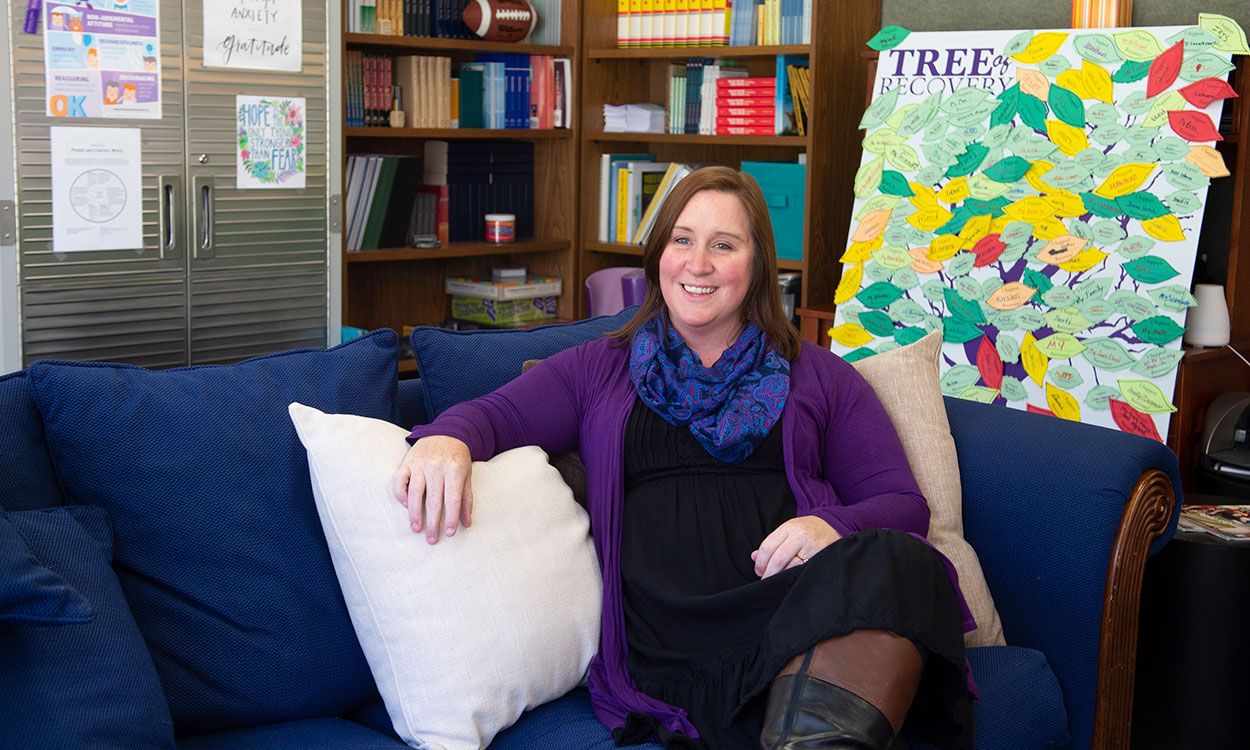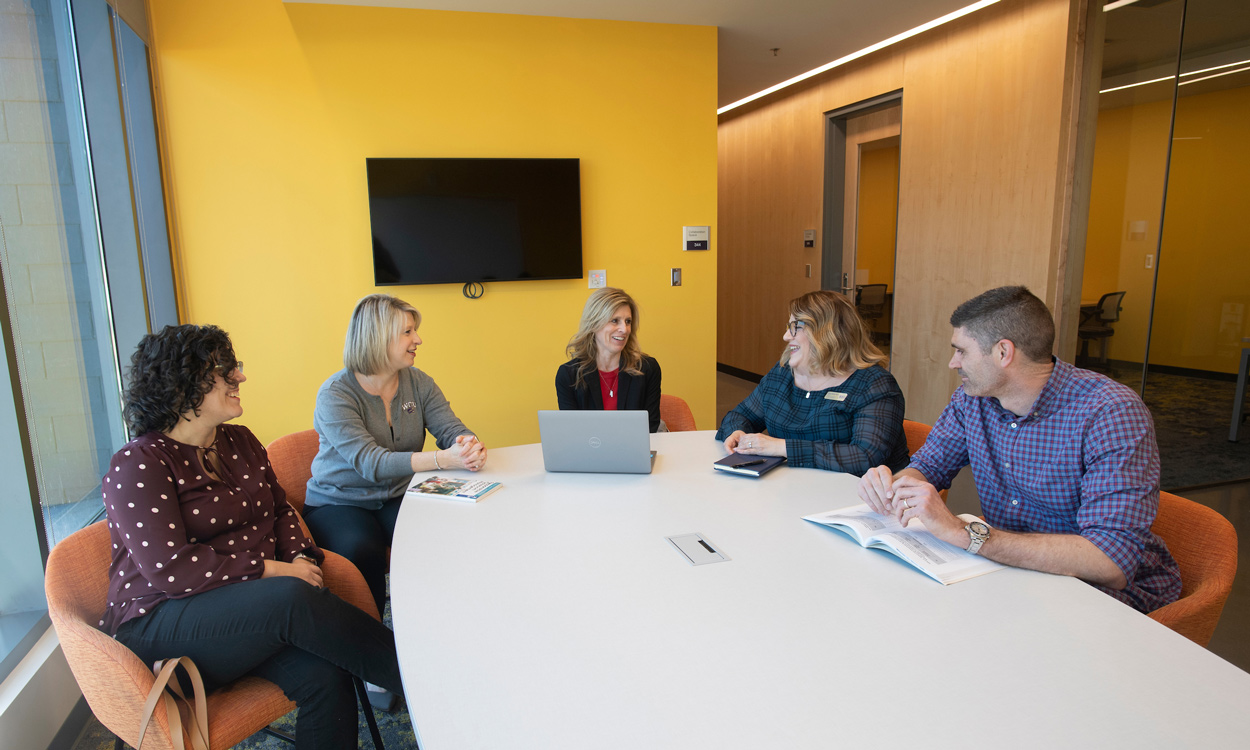Graduate student tabbed for Council on Collegiate Opioid Misuse

Since coming to Western Carolina University to complete her master’s degree in social work, graduate student Rosemary Yelton has seen firsthand the effects the opioid crisis is having on Western North Carolina.
Wanting to help fight what has become a national epidemic, Yelton was excited to learn last summer that she had been named to North Carolina Attorney General Josh Stein’s Council on Collegiate Opioid Misuse.
The council, in its second year, is composed of students from colleges and universities across the state to confront the opioid crisis on college campuses. The students are active in student government, campus athletics, Greek life, public health and social work studies, and college recovery programs.
“I was so honored and excited,” Yelton said. “I know that this is going to be a huge career trajectory for me. I’m getting my licensure as a clinical addiction specialist and clinical social worker.
“Starting on that tract in the Master of Social Work Program, I realized how important the work is to fight the tide of the opioid epidemic in America, especially in rural areas. It’s horrible. It proliferates all walks of life. I know how important it was and I knew I wanted to be involved in the clinical sense, and also with policy. This provided the opportunity to do the policy,” she said.
Stein started the council for the 2017-18 academic year. With the effort in its second year, Yelton said the group is focused on raising awareness of the state’s Good Samaritan law as it applies to opioid overdoses.
“I think there is a lot of fear when someone is overdosing, or drunk or whatever it may be,” Yelton said. “To get help, it’s kind of an act of courage. What the Good Samaritan law does is it says if you identify yourself as the caller, you won’t face legal repercussions for making that call, even if you have a small amount (of drugs) on you. Or, if you just see it happening, you can call and get help. That literally will save lives.”
The misuse of and addiction to opioids, which include prescription pain relievers, heroin and synthetic opioids such as fentanyl, have affected public health, as well as social and economic welfare. The Center for Disease Control and Prevention estimates that the total “economic burden” of prescription opioid misuse alone in the U.S. is $78.5 billion a year, including the costs of health care, lost productivity, addiction treatment and criminal justice involvement.
According to a recent study by the National Safety Council, for the first time ever, Americans are more likely to die from an opioid overdose than in a car crash. The odds of someone in the U.S. dying from an accidental opioid overdose are 1 in 96, according to the study, while the odds of dying in a car wreck are 1 in 103.
That’s why Stein has placed an emphasis on fighting the epidemic across North Carolina, and why Yelton is excited about working with him. The council held its initial meeting in November and will meet several times throughout the academic year.
“Josh Stein is wanting to really work with students and community organizations to fight the opioid epidemic,” Yelton said.
Yelton first realized the importance of this work while she was an undergraduate at UNC Greensboro working for a syringe exchange program shortly after two students overdosed on campus.
While at WCU, Yelton has worked with Catamounts for Recovery. She currently is working as an intern at Counseling and Psychological Services. Yelton is scheduled to graduate in May.
“Rosemary is an amazing individual, and she has a really bright future in social work,” said Christy Wyatt, a counselor and substance abuse specialist at CAPS. “She definitely goes out and is really thinking broadly about clients or students’ well-being. She’s also very passionate about the students she works with, as well as being in the forefront in policy and change at the state level.”
Yelton is particularly interested in serving in rural areas. She lived in Cullowhee until she was 12 until her parents, both WCU alumni, moved to Candler. Yelton also helps increase awareness of emergency response training at her church, Hominy Baptist, in Candler.
“It’s affecting lives of a lot of people that I love, very near and dear family and friends,” she said. “I think that any time there’s suffering and there are ways to help people who are affected by that suffering, that’s where I need to be as a person, as a Christian, as a student and as a professional. Being on the ground level, it helps destigmatize. It helps increase awareness. It helps further community efforts to stem the tide that is the opioid epidemic. That’s why it’s very important.”

